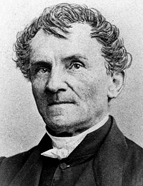

With regard to the Portuguese reality, several factors aroused the intellectual, academic and editorial curiosity of various European audiences (especially French, German and English). Examples of this are the works of Ferdinand Denis in France and Schaefer in Germany, the most significant figures in foreign historiography on Portugal in the first half of the 19th century (Sérgio Campos Matos, Historiografia e Memória Nacional..., 1998, p. 51). The difference is that Schaefer can be seen as a multifaceted historian in his views and analyses of Portuguese institutions, diplomacy and political and military events, while Denis was above all a scholar and editor of unpublished sources, including Portuguese, Brazilian and Spanish literary, historical, poetic and dramatic manuscripts ( ), as well as a populariser and historian of Portuguese culture.
Schaefer himself complained in his Geschichte von Portugal about the scarcity of sources and histories of Portugal published in German. In the preface to the second volume of the work (1839), he lamented the absence of critical histories of Portugal in easily accessible languages: “The author did not enjoy the advantage possessed by historians of other European states, whose history had already been narrated several times in German or in a well-known language” (História de Portugal desde a fundação da monarquia..., vol. V, 1899, p. 454). He even refers to the “pitiful state of Portuguese historical literature in Germany” (and perhaps also in other countries?). In the preface to the first volume (1835), he had already confessed the difficulty he felt in “combining historical studies, which are inevitable in such a project, with historiography intended for the highest class of students in public education” (Idem, p. 453). In other words, in combining the roles of university professor and historian.
This work is financed by national funds through FCT - Foundation for Science and Technology, I.P, in the scope of the projects UIDB/04311/2020 and UIDP/04311/2020.
